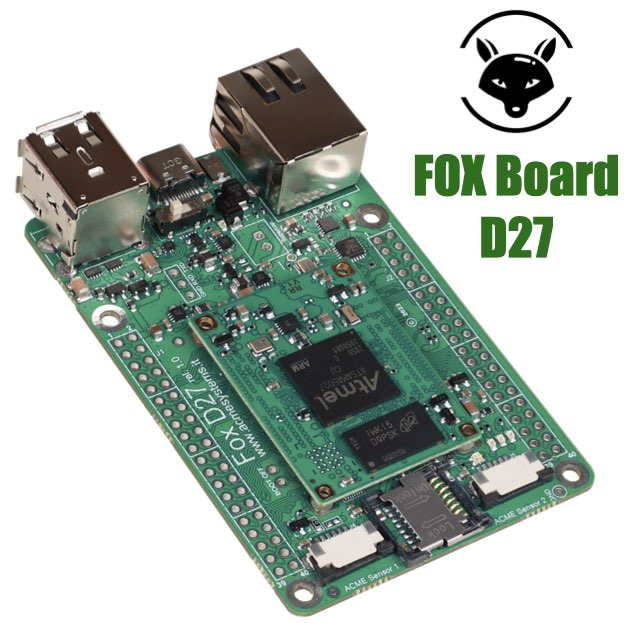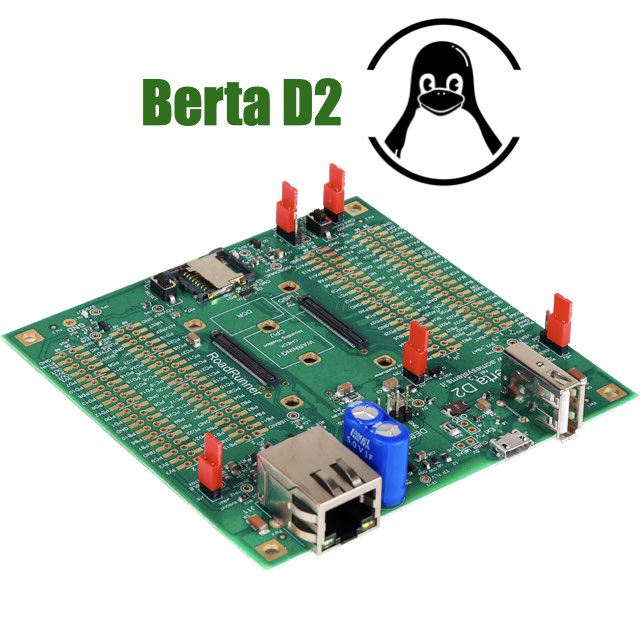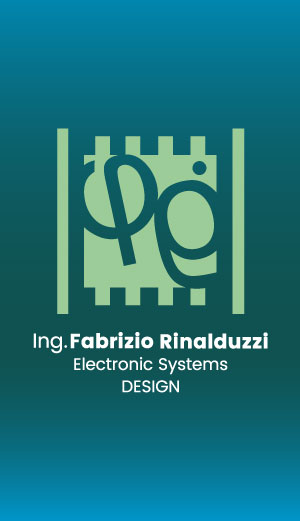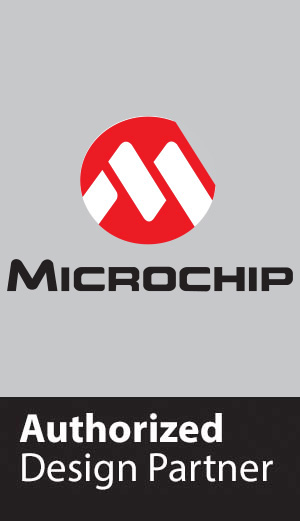Roadrunner technical documentation Buy
How to use the I2C ports
The I2C bus lines are located on the following pins:
| Signal | Per A | Per B | Per C | Per D | Per E | Per F | |
|---|---|---|---|---|---|---|---|
| TWD0 | SDA | PD21 | PB31 | PC27 | PC29 | ||
| TWCK0 | SCL | PD22 | PC0 | PC28 | PC30 | ||
| TWD1 | SDA | PD4 | PD19 | PC6 | |||
| TWCK1 | SCL | PD5 | PD20 | PC7 |
Kernel configuration
Device Drivers --->
I2C support --->
<*> I2C device interface
I2C Hardware Bus support --->
<*> Atmel AT91 I2C Two-Wire interface (TWI)
Device tree
i2c0: i2c@f8028000 {
dmas = <0>, <0>;
pinctrl-names = "default";
pinctrl-0 = <&pinctrl_i2c0_default>;
i2c-sda-hold-time-ns = <350>;
status = "okay";
};
i2c1: i2c@fc028000 {
dmas = <0>, <0>;
pinctrl-names = "default";
pinctrl-0 = <&pinctrl_i2c1_default>;
status = "okay";
};
pinctrl_i2c0_default: i2c0_default {
pinmux = <PIN_PD21__TWD0>,
<PIN_PD22__TWCK0>;
bias-disable;
};
pinctrl_i2c1_default: i2c1_default {
pinmux = <PIN_PD4__TWD1>,
<PIN_PD5__TWCK1>;
bias-disable;
};
Using I2C from user space
i2c-tools
The faster way to do the first experiments with this board is by installing and using the i2c-tools.
i2c-tools is a package contains a heterogeneous set of I2C tools for Linux such as:
- a bus probing tool
- a chip dumper
- a register-level access helpers
- an EEPROM decoding scripts
- ...and more
To install i2c-tools on the FOX Board just type:
apt-get update
apt-get install i2c-tools
Using i2cdetect
i2cdetect is an userspace program to scan an I2C bus for devices. It outputs a table class='acmetable' with the list of detected devices on the specified bus.
Example of use:
i2cdetect -y 0
0 1 2 3 4 5 6 7 8 9 a b c d e f
00: -- -- -- -- -- -- -- -- -- -- -- -- --
10: -- -- -- -- -- -- -- -- -- -- -- -- -- -- -- --
20: 20 -- -- -- -- -- -- -- -- -- -- -- -- -- -- --
30: -- -- -- -- -- -- -- -- -- -- -- -- -- -- -- --
40: -- -- -- -- -- -- -- -- -- -- -- -- -- -- -- --
50: -- -- -- -- -- -- -- -- -- -- -- -- -- -- -- --
60: -- -- -- -- -- -- -- -- -- -- -- -- -- -- -- --
70: -- -- -- -- -- -- -- --
In this case a device has been detected on address 20 hex.
i2cset and i2cset
i2cset is a small helper program to set registers visible through the I2C bus.
The follow simple command writes the byte value 255 to the I2C device at address 20 hex on the i2c bus 0 (/dev/i2c-0).
i2cset -y 0 0x20 255
If for example you are using a DAISY-22 module with a PCF8574 I2C I/O expander this command will set all the GPIO lines to 1.
i2cget i2cget is a small helper program to read registers visible through the I2C bus.
The follow simple command read a byte from an I2C device at address 20 hex on the i2c bus 0 (/dev/i2c-0).
i2cget -y 0 0x20 0x01
Links
Related products

- CPU Microchip SAMA5D27
- Cortex A5 @ 500 MHz
- Low power consumption:
Suspend to RAM mode 10mW
Full speed: 396mW - Debian, Buildroot and Yocto Linux
- Fully open source drivers

- Low power consumption
- Two USB Host 2.0 ports (one configurable as USB client on the USB-C connector)
- One 10/100 Mbit/s Lan port
- 2 Acme Sensor ports
- Huge set of GPIOS, SPI, I2C and serial lines






